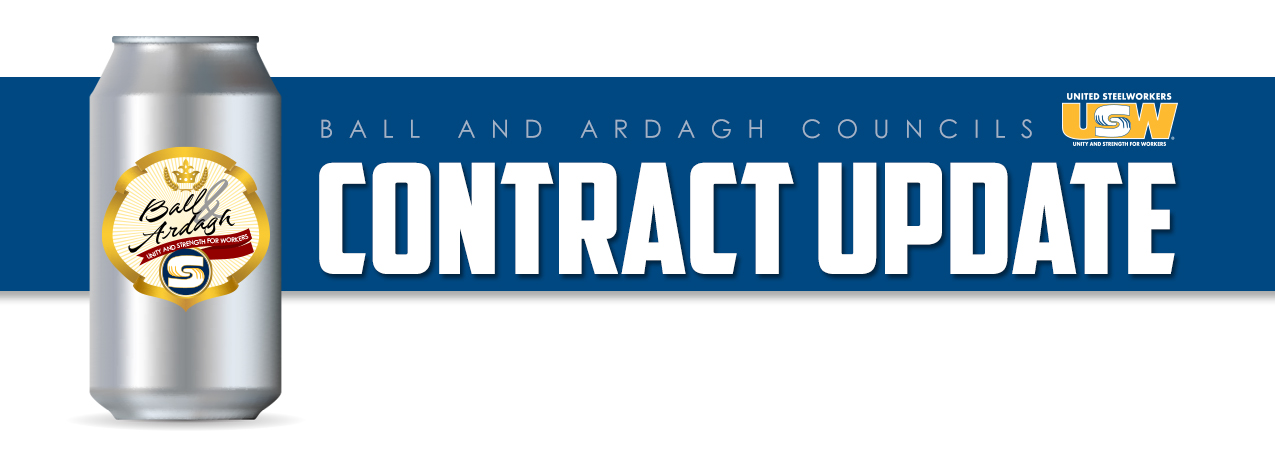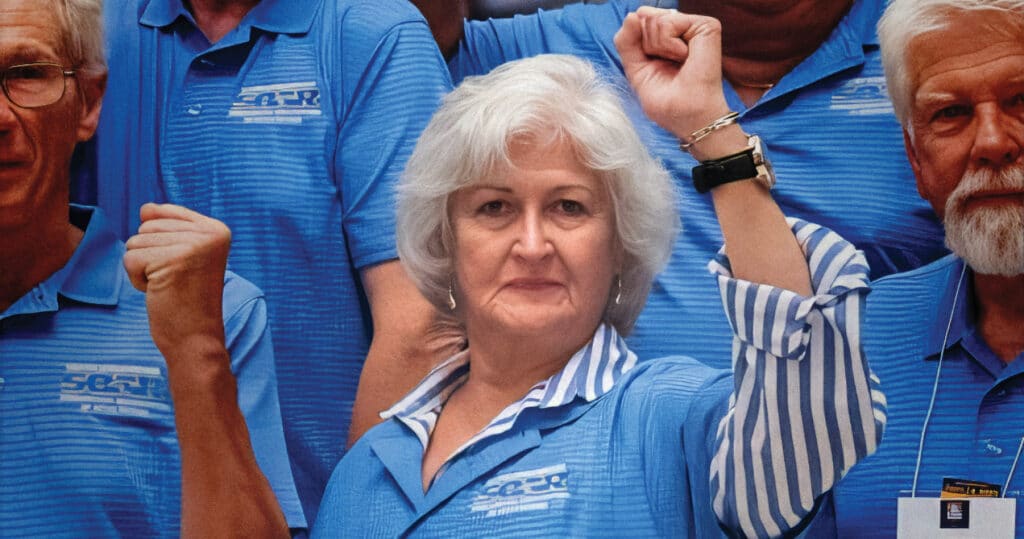The ABC’s of Bargaining at Ardagh and Ball

The ABC’s of Bargaining at Ardagh and Ball
Information on how we negotiate our next contract and how your involvement can affect the final agreement
Q: When does bargaining start?
A: Our current contracts with Ardagh and Ball are scheduled to expire on February 24, 2017 and contract negotiations are right around the corner. The Ardagh committees will meet with Ardagh management to exchange proposals on January 9th and bargaining is scheduled for the following two weeks. The Ball committees will exchange proposals with Ball management on January 31 and bargaining is scheduled in mid-February.
Q: What is collective bargaining?
A: Collective bargaining is an on-going and exclusive relationship between an employer and a union (United Steelworkers) in which a written contract is negotiated, implemented, and enforced. It covers wages, hours, and other terms of employment. It also includes the conditions under which the employees represented by the union do their work.
Q: What happens in negotiations?
A: Negotiations with each company take place at the bargaining table, where representatives from the company and the union come together to put forth and discuss concrete proposals, in good faith. The goal is to reach an agreement that will be mutually acceptable and beneficial to the company and the union’s membership.
Q: How can I find out what’s happening in contract negotiations?
A: Each local union has established a Communication and Action Team (CAT) that is responsible for providing regular updates to the membership throughout the bargaining process. We’ll also be sending out regular text messages with information on bargaining. To sign up for text messages, text CAN to 47486 (standard message and data rates apply, text stop anytime to opt out).
Q: Why is bargaining power important?
A: Having power is important because the company is not going to “give” us — the workers in the union— or our negotiators anything, no matter how reasonable our proposals may be. Bargaining power is what gives us the ability to have our issues addressed in the negotiating process, and it is a decisive factor in shaping the final agreement.
Q: How do we get more power at the bargaining table?
A: Taking action to build up the solidarity on the shop floor can lead to greater bargaining power. Throughout the bargaining process you bargaining committee will be providing regular updates on the status of negotiations asking you to participate in solidarity actions like placing placards in our car windows and distributing flyers to show management that you’re supporting the committee and that you’re ready to do whatever it takes to win a fair contract. We know that management will be watching very closely so it’s important that we have strong participation at each location.
Q: What kinds of proposals are discussed in negotiations?
A: They range from pay raises to safety conditions. Generally, contract proposals fall into the following categories:
- Economic proposals (wages, benefits, retirement, health care, etc.)
- Non-economic issues (safety standards, breaks, grievance procedure, etc.)
Some proposals are easy for both sides to agree on and others are tougher and take longer for both sides to find common ground. Neither the company nor the union will get 100% of what it puts on the table. But the more the company’s negotiators believe we have the bargaining strength to stick to our bottom line, the less likely they will adopt a “take it or leave it” strategy.
Q: How does it work?
A: Proposals are presented and clarified by both sides. Issues are discussed. Both sides caucus (meet separately), make counter proposals, test out ideas, look for ways to bridge differences and determine bottom lines. The goal is to reach a tentative agreement.
Q: Do members get to vote on a tentative agreement?
A: Only local members in good standing can vote to “ratify” or reject a tentative agreement. The bargaining committee can recommend acceptance of any tentative agreement reached with the company.
Q: What happens if we don’t finish negotiations before the contract expiration date?
A: If the company and the union have not reached an agreement by the contract expiration date, we can extend the contract or continue to work under the same terms and conditions.
Without an agreed upon extension, the terms and conditions remain the same even after contract expiration. This is true as long as we don’t reach a lawful impasse, which occurs when neither side is willing to budge from its bargaining position.
Basically, in most cases, things stay the same as we continue to work. It is common for local unions to bargain beyond their expiration date as both parties work through the bargaining process and get closer to a deal.
By clicking Sign Up you're confirming that you agree with our Terms and Conditions.
Recent News Articles
Want to Learn More?
See how the USW is making a real difference in our communities and our workplaces.

